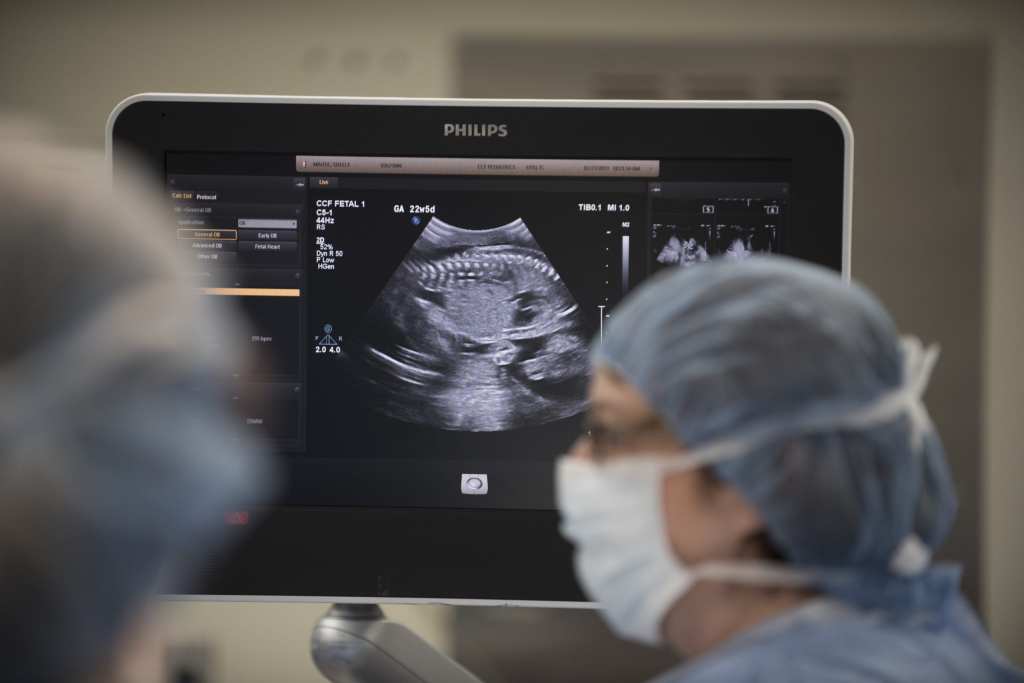A healthy baby girl was delivered after the first in utero spina bifida operation by Cleveland Clinic surgeons. The operation was performed on the child to correct the condition that causes spinal defects while she was still in the womb.

Photo Credit: Pixabay
The surgery was completed in February when the girl was only at 23 weeks gestation, and she was born by cesarean section in June. A statement by the Cleveland Clinic said both mother and baby were in good health.
The surgical team was led by Darrell Cass, M.D., director of Fetal Surgery in the Cleveland Clinic’s Fetal Center and a specialist who has performed more than 160 in utero surgeries since 2002.
Other members of his team included included Amanda Kalan, M.D., medical director of Cleveland Clinic’s Special Delivery Unit; Violette Recinos, M.D., and Kaine Onwuzulike, M.D., both pediatric neurosurgeons; Francine Erenberg, M.D., fetal cardiologist; and McCallum Hoyt, M.D.and Tara Hata, M.D., obstetric and pediatric anesthesiologists.

Photo Credit: Cleveland Clinic
Spina bifida is commonly determined via fetal scan at 18 weeks. The condition affects the lower spine and occurs when the neural tube does not close properly, preventing the protective back bone from forming. When this happens, damage occurs to the spinal cord, nerves and sometimes the brain.
The CDC says approximately 1,645 children are born annually with the condition, which affects the use of their legs for walking and running, and the ability to urinate properly.
To repair the defect in utero is ground breaking. Doctors make a small cesarean style incision in the mother’s abdomen. Through ultrasound, the fetus is located and the uterus opened. Surgeons then suture the spina bifida lesion at the base of the fetus’ spine, covering it with several layers of tissue, and sew the patients back up.

Photo Credit: Cleveland Clinic
After the pregnancy is completed, the baby is delivered via cesarean section.
“By successfully repairing the defect before birth, we’re allowing this child to have the best possible outcome and significantly improve her quality of life,” said Dr. Cass. “There are different measures of quality in determining success for fetal repairs and in this particular case, all metrics for maximum quality were achieved.”

Photo Credit: Cleveland Clinic
However, spina bifida is never fully cured. “Moving forward, the baby will require ongoing supportive care provided by a multidisciplinary team of caregivers in our Spina Bifida Clinic, which will involve neurology, urology, orthopedics, developmental pediatrics and neurosurgery, among other specialists,” said Dr. Cass.
Dr. Cass wants to see the procedure give hope to parents facing spina bifida. “Families in this region now have more options when it comes to making these types of decisions and we are thrilled to be able to provide the care needed for these complex cases.”






